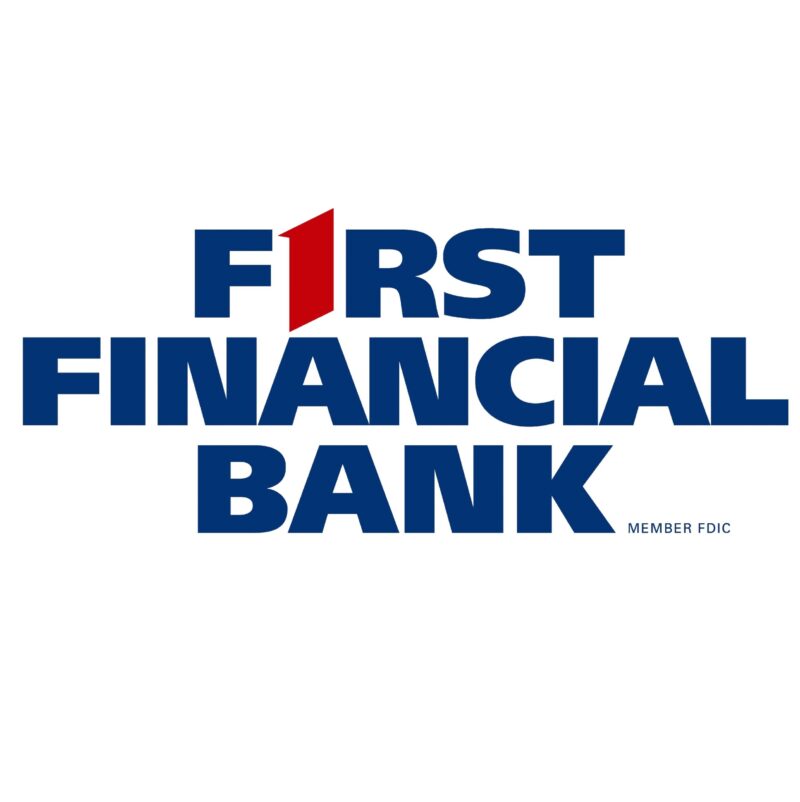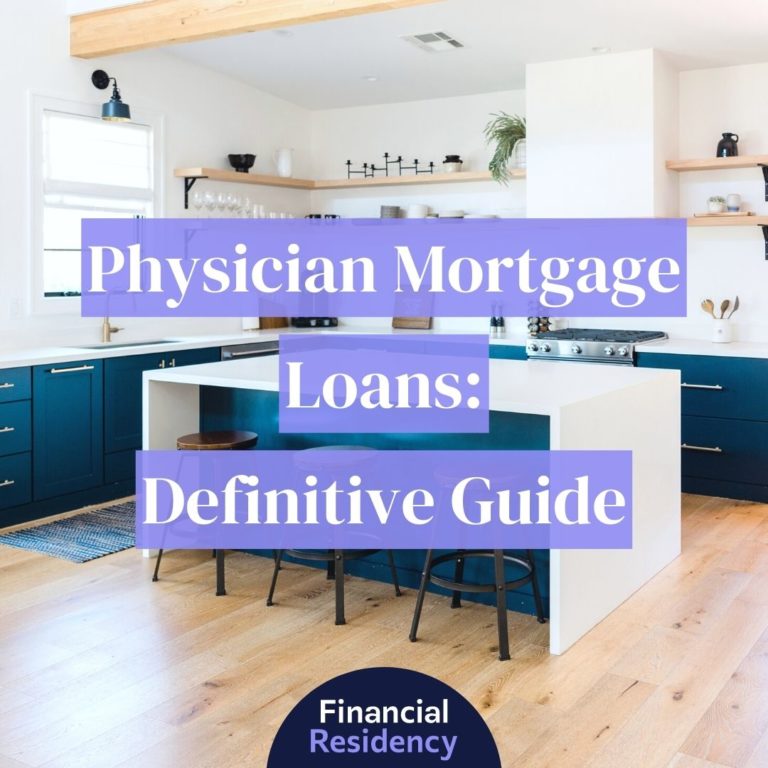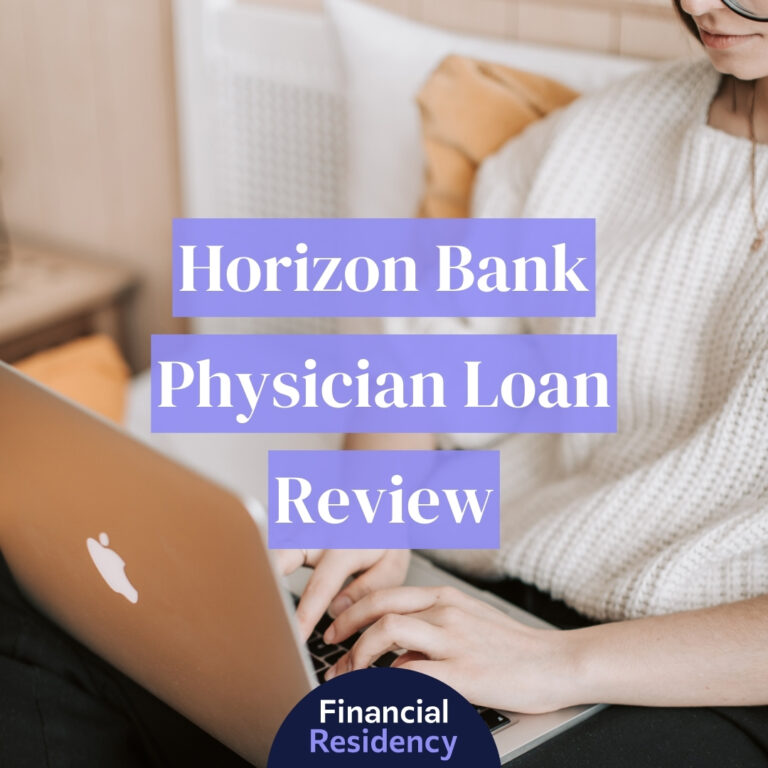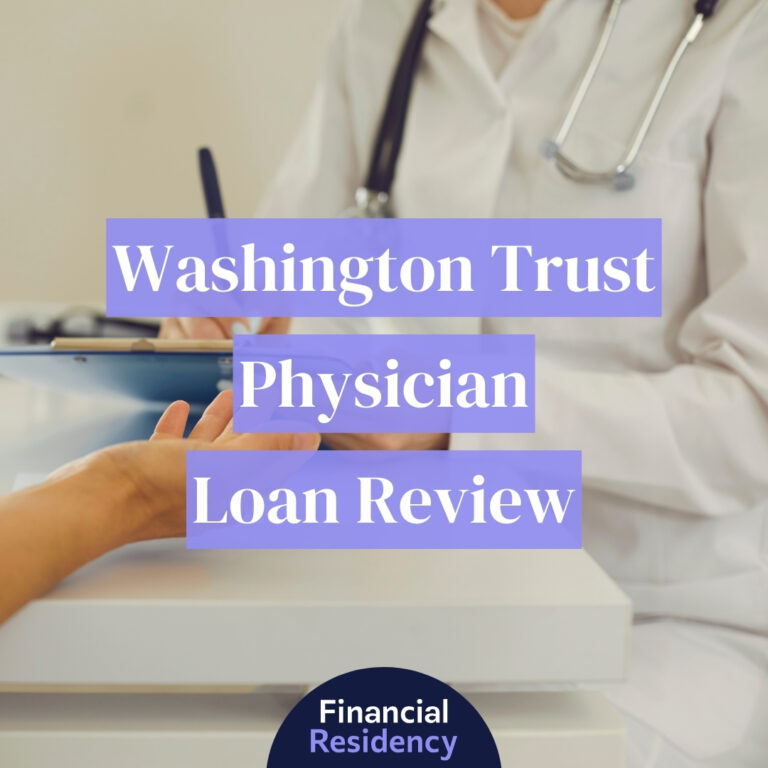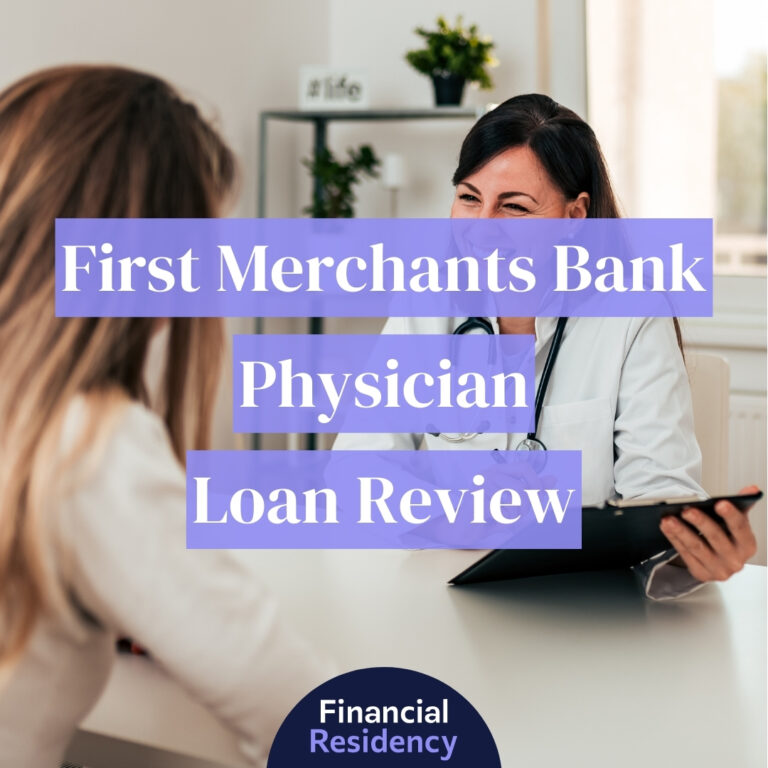The First Financial Medical Professional’s Mortgage Program is a special home loan program to help medical professionals — who may not qualify for a conventional mortgage — purchase their new home.
The home-buying process is more flexible for doctors with this type of specialized financing. These home loans generally have low down payment requirements, no PMI requirements, flexible debt-to-income (DTI) calculations, and numerous other benefits. Zero money-down financing is common.
This review article will cover what you need to know about First Financial Bank’s doctor mortgage loans, including maximum loan amounts, income verification requirements, and insurance requirements. We’ll also cover what you need to know about similar financial products and about physician loans in general.
About First Financial Bank
First Financial Bank (FFB) is Texas’ ninth-largest state-based bank and 11th largest financial institution overall. The bank manages over $12 billion in total assets and provides business banking, personal banking, and trust and asset management services to Central Texans.
First Financial Bank was founded in Central Texas in 1890. Its headquarters remain there today, located in Abilene, Texas. First Financial has 25 bank branches in the region and over 80 financial centers in total.
- BBB score: A+
- CEO: Scott Dueser
- JD Power Score: NA
- Parent company: First Financial Bankshares, Inc.
- Phone number: 1 (855) 660-5862 or 1 (800) 588-7000
- Services offered: Trust management, asset management, business banking, and personal banking; consumer products and services include checking accounts, savings accounts, certificates of deposit (CDs), money management accounts (MMAs), credit cards, vehicle loans, IRAs, financial planning, and mortgage loans.
First Financial Bank Physician Loan Fast Facts
Here are a few fast facts about First Financial Bank’s physician mortgage loan program.
- Discounts: No current promotions
- Financing options: 100% financing up to $510,400, 95% financing up to $1 million, or 10% financing for loans greater than $1 million
- Physician loan products: *Fixed-rate and adjustable-rate mortgages
- Maximum loan amount: **No maximum, subject to credit approval and down payment requirements
- Qualifying degrees: MD and other ***qualifying designations
- Private mortgage insurance: Not required
*First Financial Bank offers fixed-rate and adjustable-rate mortgages among its portfolio of home loan products, however, the bank does not specify its loan types for the Medical Professional Mortgage Program. Our editorial team has reached out to the bank and will update the article with any provided information.
**Our editorial team is seeking confirmation from loan officers at First Financial Bank and will update the article with any provided clarification.
***Eligible medical degrees or occupations are not published. Our editorial team has contacted First National Bank for a full list and will update the article should information be forthcoming.
First National Bank Physician Loan Qualifications
Physician loans are not generally widely advertised. First Financial Bank does feature limited information on its website about the Medical Professional Mortgage Program but details are sparse.
This may indicate that physician loans are not a uniform product with the same requirements for every borrower, but rather a set of special considerations (allowances) made on a per-individual basis based on each doctor’s education, total debts, and lifetime earning potential.
Here’s a general rundown of FFB program highlights:
- Good to Excellent Credit: No minimum number published, but loans are “subject to credit approval.”
- Down Payment: 0–10% down payment depending on the loan amount
- Owner-Occupied Property: *Must be an owner-occupied primary residence
- Eligible Degree: Medical doctors and other **qualifying healthcare degrees
- Significant Savings: No cash reserves requirement
- Verified Income: Last two (2) years of tax returns and recent pay stub or guaranteed salary through a future-dated employment contract
*Restrictions may apply for property or dwelling type. The editorial team has reached out to First Financial Bank for clarification.
**Pending updated list from mortgage loan office at First Financial Bank.
Discover The Best Lenders Answer just a few questions about your career, where you're buying, and how much you want to borrow. Our service will then show you the exact programs you're eligible for from vetted physician loan specialists who will guide you through every step of the process – obligation-free!
How to Apply
Knowing what to expect with the mortgage loan application process can help you prepare for each step.
Get Prequalified
This is the first step in the process and is fairly straightforward. Here, you’ll provide your lender with some basic information about your debts and assets and they will let you know how much home financing you qualify for. This is a rough figure to give borrowers an idea of how much home they may be able to afford.
Often, the prequalification process will involve a soft credit pull so the lender can make an informal calculation.
Once they’ve received their prequalification amount, many homebuyers contact a real estate agent and begin the house hunt process.
Prepare Your Documents and Review Your Credit Report
The mortgage process requires significant paperwork, so it’s wise to begin gathering all of the documents that the lender will need. You’ll also want to review your credit report to ensure the data appears accurate and there are no items you need to dispute.
Documents you’ll need to gather commonly include:
- Recent pay stubs
- Future-dated employment contract (commonly tied to a start date within a set number of days from the target closing date)
- Tax returns (past two years)
- Investment account statements (including retirement savings)
- Bank account statements (demonstrating you have funds for the down payment, closing cost, and any required cash reserves)
- Letters of explanation (to indicate the source of gift funds or other unexplained assets)
- Copies of any court orders or decrees (i.e., child support, alimony, discharge of bankruptcy and distribution to creditors)
- Medical credentials
- Rental history
- Personal identification (driver’s license or government-issued identification, Social Security card)
Get Pre-Approved
Getting pre-approved is where you’ll find out the mortgage amount you qualify for. You can meet with a loan officer in person at an FFB branch, or you can begin the process online.
The pre-approval amount that you qualify for is good for 90 days, so borrowers should hold off on getting pre-approved until they are ready to make a purchase offer. You don’t have to wait until you have found the home you want to buy, rather you are actively looking and ready to make an offer as soon as you find that home.
Typically, you’ll have already begun looking at homes when you receive your pre-approved amount. If you have not started working with a real estate agent, you need to get started right away.
Confirm and Lock in the Rate
In addition to your pre-approved loan amount, the bank officer will also advise you of your loan’s interest rate. This rate will be locked in for 45 days, but the final interest rate — even within 45 days — can fluctuate based on changes in the loan product, type of property, property location, market conditions, closing date, or borrower’s credit score.
Some borrowers may be conditionally pre-approved with some specific caveats. For example, the bank may recommend that you pay down a specific debt before they approve your home financing.
First Financial Bank Physician Loan Alternatives
In addition to FFB, many other financial institutes offer similar physician loan programs. Here’s a quick rundown of some other competitive options.
1. Flagstar Bank
Flagstar Bank offers a popular professional mortgage program for doctors, medical practitioners, and select non-medical professionals. Eligible program participants include:
- Medical Resident (Educational License)
- Medical Doctor (MD)
- Doctor of Dental Surgery (DDS and OMS)
- Doctor of Dental Medicine (DMD)
- Doctor of Optometry (OD)
- Doctor of Ophthalmology (MD)
- Doctor of Pharmacy (PharmD)
- Doctor of Podiatric Medicine (DPM)
- Doctor of Osteopathy (DO)
- Physician Assistant (PA)
- Registered Nurse (RN)
- Certified Registered Nurse Anesthetist (CRNA)
- Nurse Practitioner (NP)
- Clinical Nurse Specialist (CNS)
- Airline Transport Pilot (ATP)
- Certified Public Accountant (CPA)
- Attorney (JD)
- Veterinarian (DVM)
Qualified borrowers can receive up to 100% financing on home loans up to $1 million. With a down payment, Flagstar will finance up to $1.5 million.
The program is open to U.S. citizens, Green Card holders, and H-1B visa holders.
Borrowers must have a credit score of at least 720 and be early-stage career professionals. The program is designed for professionals who have begun working in their careers within the past 10 years.
2. Bank of America
Bank of America (BOA) has an extensive doctor loan program that offers qualified medical professionals up to $2 million in mortgage financing. While BOA’s program has no zero money-down mortgage options, the bank has more lenient credit score requirements and it excludes student loan payments from its debt-to-income ratio calculations. Additionally, there are no PMI requirements.
For mortgages up to $850,000, BOA requires a down payment of just 3% — which is less money down than required for even an FHA loan. For additional financing beyond $850,000, a down payment of 5% to 15% is required.
BOA’s doctor loan program is open to practicing dentists or doctors with an MD, DDS, DMD, OD, DPM, or DO designation.
3. U.S. Bank
Another large multinational institution, U.S. Bank offers a doctor mortgage program to finance or refinance home purchases. The program is offered across all. 50 states and Washington D.C. The program is open to Medical Doctors (MD), Doctors of Osteopathy (DO), or Attorneys (JD). Doctor residents and fellows may also be eligible.
Like BOA, U.S. Bank does not have any 100% financing options. U.S. Bank does, however, offer 95% financing on loans up to $2 million and there are no PMI requirements for doctor mortgages. In total, U.S. Bank’s doctor program offers up to $2.5 million in total financing and provides both fixed-rate and adjustable-rate mortgage options.
Unlike many other programs, U.S. Bank does include student loan debt in calculating the borrower’s debt-to-income ratio. Those with significant student loan debt may have difficulty qualifying for a higher loan amount.
Additionally, U.S. Bank requires a 710 minimum credit score and cash reserves of three (3) to 12 months depending on the mortgage amount and loan terms.
4. BMO
BMO Bank (formerly known as BMO Harris Bank) operates a nationwide physician mortgage program. The bank extends doctor mortgages in Washington D.C. and all 50 states except New York.
BMO’s program provides home loan financing of up to $2 million for medical doctors and dentists. New doctors — within 10 years of starting their career — may qualify for 100% financing on home loans up to $1 million. More advanced-stage professionals will typically need a down payment of 10% to 15%.
While BMO does not completely overlook student loan monthly payments, the bank will approve DTI ratios of up to 45%.
5. Evolve Bank & Trust
Arkansas-based Evolve Bank & Trust also operates a physician mortgage program. Evolve extends specialty home financing to qualifying medical doctors in all 50 states. Borrowers can receive up to $1 million in financing with no money down, or up to $2 million in financing with a down payment.
Evolve Bank offers construction loans and adjustable-rate mortgages, but no fixed-rate mortgage options, and is more flexible on eligible property types. Evolve will offer doctor financing for primary or secondary residences, including single-family homes, multi-family homes, condominiums, HOA properties, co-ops, vacation homes, or new construction builds.
In terms of qualifying professions, First Financial Bank is more inclusive than many other mortgage lenders. Eligible designations include:
- Medical Doctors (MD)
- Osteopathic Doctors (DO)
- Dentists (DMD and DDS)
- Optometrists (OD)
- Pharmacists (PharmD)
- Podiatrists (DPM)
- Physician Assistants (PA)
- Chiropractors (DC)
- Veterinarians (DVM)
- Certified Registered Nurse Anesthetists (CRNA)
- Nurse Practitioners (NP)
- Clinical Nurse Specialists (CNS)
Pros and Cons
Here’s a quick recap of the pros and cons of the First Financial Bank Physician Loan Program.
Pros
- 100% financing options are available. Eligible participants can borrow up to $510,400 with no down payment.
- Low down payment A 5% down payment is required for loans up to $1 million or 10% down for loans greater than $1 million.
- No private mortgage insurance (PMI) is required, which could save up to 2% off your monthly mortgage payments.
Cons
- Lower home loan amounts for 100% financing. Many other physician loan programs will finance $700,000 to $1 million with no money down.
- Limited program information. First Financial Bank does not share public information about eligible degrees, credit score requirements, mortgage payment options, or qualifying property structures.
Frequently Asked Questions
Here are some of the most common FAQs that readers have about the First Financial Physician Loan Program, and about doctor mortgages in general.
Is First Financial Bank in Texas Affiliated with First Financial in Ohio?
No, the two institutions share the same name but are not affiliated. First Financial Bank in Texas (ffin.com) is a subsidiary of First Financial Bankshares, Inc. and a member FDIC banking institution. Its FDIC number is 3066.
Ohio-based First Financial Bank (BankAtFirst.com) is owned by First Financial Bancorp and holds FDIC registration number 6600. BankAtFirst also offers a mortgage program for doctors and other professionals, however home financing may not be available in Texas.
Are Mortgage Rates Better for Physician Mortgages?
No, physician mortgage rates are not better than non-physician mortgage rates. Rates are based on creditworthiness, mortgage product (ARM vs fixed-rate), and loan terms, not the borrower’s specific occupation.
In many instances, physician loans may have a higher interest rate if there is a variable rate for part of the loan’s term, as with ARM financing.
Still, physician mortgages are often the better choice for medical professionals because they come with many benefits that can lower the overall cost of home ownership. This includes low down payment—or even no down payment—requirements, no private mortgage insurance (PMI) requirement, and financing options that a doctor may not qualify for with a traditional mortgage due to high student loan debts.
What is the Minimum Credit Score Needed for a Physician Home Loan?
Most financial institutions offering physician loans require a minimum credit score of 700 to 720. Extraco Banks, another Texas-based financial institution, will extend physician mortgage financing to borrowers with credit scores as low as 660.
